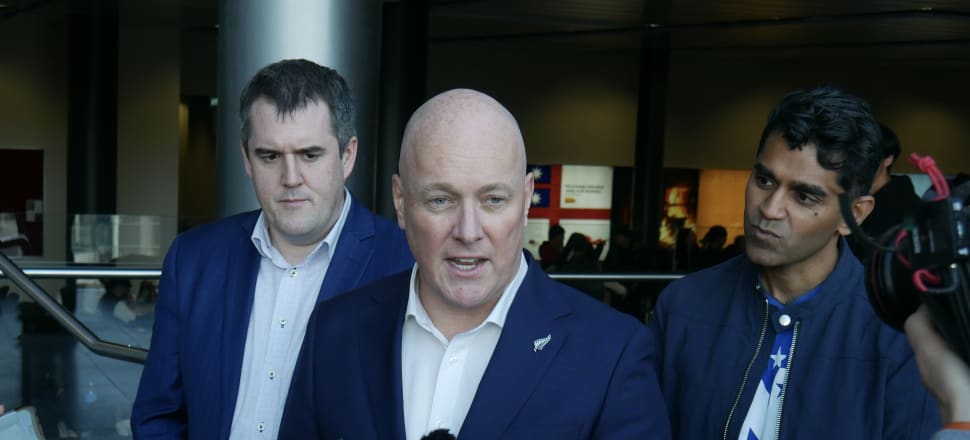
National is promising students a way through the price shocks of flat life, but they’ll have to dig into their own savings to do so
National Party leader Christopher Luxon and housing spokesperson Chris Bishop announced a policy that would allow under-30s to reach into their KiwiSaver accounts to pay for expensive flat bonds.
The mostly student-focused policy was announced at the University of Auckland campus on Monday, where the new semester is kicking off with an expo of clubs and campus organisations.
Under National, students would be able to withdraw the equivalent of four weeks' rent in one go to pay for bond.
Bishop said the policy had initially been floated by the Young Nationals.
“Getting together bonds for flats is a real issue for many young people,” he said. “It can be up to four weeks' rent for a bond payment, and if you look at the average rents around the place in Auckland and Wellington, that can be up to around $2,500.”
Luxon said things had been “incredibly tough” for students, who often found themselves without the chunk of cash needed to move.
The policy would see the money being directed straight to tenancy services, which hold bond money until its fate has been settled.
Bishop said the policy would focus solely on bonds, rather than letting fees and other transaction costs.
While students were often “cash poor”, they “often have a reasonable amount of money in [their] KiwiSaver”.
He said it was a “common-sense law change” that would help young people make their way into the workforce, although acknowledged it would see them lose out on some of the interest their KiwiSaver would have been accruing.
The Owen Glenn building at the University of Auckland was bustling with students returning to class after their mid-semester break, many of whom will have to do some tricky contortions to make ends meet.
Luxon said he’d had a good reception out on the floor among the students, and rejected the idea the policy was an attempt to buy their votes.
He disagreed that students tended to vote left, saying National had been doing “exceptionally well” among the age demographic.
“What we’ve seen over the last 18 months is that young demographic is actually quite well-informed about why good economic management is important to them,” he said.

The students' reaction to the policy was more mixed. A student called Sho waiting to go into a lecture said the idea seemed sensible, but that many of his fellow students weren’t too fussed about such granular policy.
“It does seem sensible though, as the costs can be a big deal for people having to change flats at short notice,” he said.
Another student said it was a good idea, but wasn't sure if he'd be voting National.
Over at the Young Act stall, a student named Abbey didn’t agree with the policy, saying it would chip away at savings that were important for the future.
“National seems to have this obsession with digging into KiwiSaver,” she said. “That’s not what it’s for.”
Over at the Greens stall, there was a surprising amount of agreement with the Young Act supporters.
Greens MP Golriz Ghahrahman said the policy was just “moving money around”.
“It sound like more embarrassingly unambitious policy from a big party that by this point in the election and the electoral cycle should have bold ideas that are actually going to make things easier for students."
She said the Greens’ rental protection policy would help all renters of any age by enforcing higher rental standards and longer-term financial assistance for renters.
“This is something that impacts people of all ages, and taking money out a retirement fund, which at the other end is going to harm people’s ability to live well when they are older, is absolutely not the way forward, it’s not transformational.”
The Greens’ policy has attracted criticisms from the centre-right, with Act housing spokesperson Brooke van Velden saying it attacks landlords.
For National, dipping into KiwiSaver allows them to make promises to students without losing the favour of the landlords – a bloc of votes they’ll be counting on.
Speaking at his post-cabinet press conference, Prime Minister Chris Hipkins called the policy "another example of the National Party raiding KiwiSaver all of the time".
"Ultimately, the main message that young New Zealanders can take from that is that they'll have to wait longer to retire and they'll have less savings when they retire."
Hipkins wondered whether many of the cash-strapped young New Zealanders would have enough in their KiwiSaver accounts to pay for the bond.







